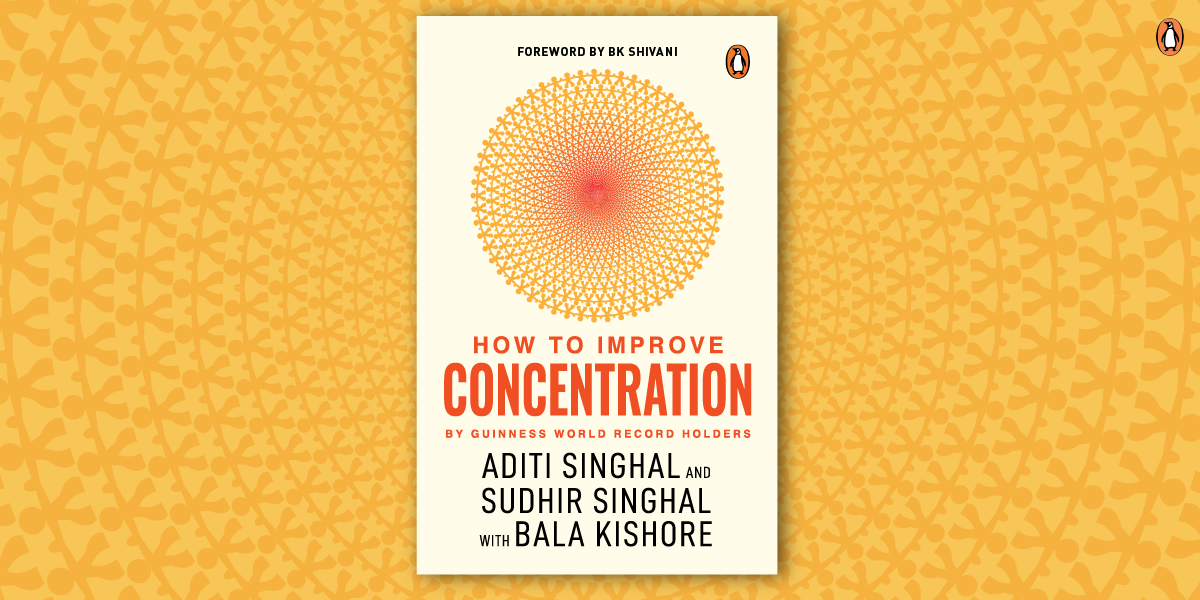By Aditi Singhal and Sudhir Singhal
During one of my recent 10-day summer workshop on maths, I asked the mother of a child studying in 5th standard to practice the times tables with her son at home. She replied,‘No, I don’t want to give stress to him in holidays too’. Herein lies the actual reason why both children and adults are so scared of mathematics. From the very beginning, we associate studies with stress, especially when we talk about maths.
On the first day of the workshop, that child was not very interested in doing maths sums and strongly believed he was not good at the subject. Over the course of the workshop, we did lots of activities, number games and worksheets, in which he actively participated. With each day, he showed increased interest, understanding and comfort in the subject. By the end, he was able to answer questions quickly and accurately, and most importantly, he started enjoying them. He said maths had never interested him earlier. And he wasn’t the only one. We had similar responses from other students and their parents. I requested parents to not associate studies with stress, and continue asking the kind of questions we had been asking to boost their confidence over the holidays and help them improve performance in school too.
Many parents wonder what magic we do on their kids when they come to us. But the fact is it all depends on what you think about your subject and how you present it to students, both children and adults. If a teacher introduces a concept by saying ‘today we are going to start a new topic and it is very difficult. You need to pay attention, otherwise they won’t understand’, those students who find maths difficult automatically switch off, thinking they won’t be able to understand today’s topic.And the students who like the subject also tend to get a little stressed,which is not an ideal mindset for establishing a solid foundation. Instead, if a topic is introduced by saying, ‘Today we are going to learn something very interesting, which I feel you all will enjoy doing,’ and some activity or storytelling accompanies it, then everyone can get involved.
During interaction with students and teachers over the years, we have realized that whether one fears maths or loves it depends on how well a person understands it. If someone scores well in maths, they start liking it. But if they give wrong answers, they develop a fear of the subject, believing that maths is difficult.
The main factors that contribute to this fear are:
- Clarity of concepts –When a concept is not clear, the child or adult makes mistakes repeatedly, losing confidence and eventually giving up.
- Lack of practice – If someone understands the concept but doesn’t practice it enough, then he/she is not going to retain it for a longer time. Through practice, one is able to understand the patterns involved in the procedure and develops strong pathways in brain which are required to accomplish a particular task.
- Wrong beliefs and messages – Every time a child hears a parent, older sibling, grandparent saying ‘Maths is very difficult’, it makes them think if their elders feared the subject, then it must indeed be very difficult to master, feeding their fear of the subject.
- Not able to relate it with daily life situations – Most students are unclear about the significance of the topics covered during their maths class. Often, they do not see a connection between the topics taught and real-world problems.
To remove the fear of maths, we need to shift our focus from remembering procedures or formulae to understanding them with proper reasoning. First of all, maths should not be treated as just a subject you need to study to get marks in exams. Rather, the emphasis should be on knowing the beauty and importance of maths in daily life. In the present education system, upto eight standard, maths curriculum is focused on calculation skills involving mainly long procedures and formulae. That’s why, with time, students start losing interest in it as they think calculations can easily be done using calculators and mobiles. The remedy for this is for school-level maths to be more related to day-to-day situations. The emphasis should be more on developing mathematical thinking and problem solving skills of a child rather than just working on calculations. Apart from teaching the procedures to solve a particular problem, understanding of why we are using that procedure should also be taught. In short, we need to add the why along with the how to solve a given task or problem.
Teachers and parents can achieve this by using the following strategies:
- Planning activities to relate the concepts with real-life situations –The most effective way to counter the fear of math is to relate it with everyday’s incidents. Shopping and planning for any event at home, such as a birthday party can be a good opportunity to learn maths concepts in a simple manner. During festivals, markets are flooded with lots of offers and discounts. Motivate the child to analyze the best deal for items you plan to buy.
- Asking open-ended questions – Generally maths questions have fixed answers, which restrict creativity. If we make use of open-ended questions then it gives children more freedom to think and helps enhance their thinking skills. For example, instead of asking ‘what is the perimeter of a rectangular room having length of 7m and breadth 5m’, the question could be ‘what can be the dimensions of the room if the perimeter of a room is 24m.’ Such questions will really change the way of thinking and thus learning.
- Using magic tricks based on maths concepts– Magic fascinates everyone, so including magic tricks directly and indirectly in teaching can make children understand concepts and also develop a sense of numbers. Our book How to Be a Mathemagician contains many such tips and magic tricks.
- Including recreational activities to make learning fun – Normally,students are asked to solve questions at the end of a chapter. As a result, children know which concept or procedure to apply as they know it must be related to the topic covered in the chapter. Repeatedly practicing this way not only makes learning boring but also doesn’t allow students to identify which concept should be applied to which problem when they are asked questions in exams. Hence, teachers and parents can plan fun-oriented activities that indirectly cover concepts. We got wonderful responses from teachers and students when we suggested a treasure hunt wherein participants needed to solve a series maths questions that would lead them to the treasure.
- Using visual maths – Mostly maths is taught in an abstract manner, with formulae using various symbols. Children whose learning styles match the teaching style of teacher are able to understand concepts better and faster, but students whose learning styles do not match can fail to understand clearly. But that doesn’t mean that they are not good at maths. If they are taught using various props or kits, they can achieve equivalent or better results.
- Seeing mistakes as opportunities to learn – When a child makes a mistake and is told ‘You are wrong’, he/she looses self-esteem, and with time, develops a fear of giving answers. Instead of telling them, ‘No, this is not the right answer’, ask them some different, encouraging questions, like:
- How did you arrive at this answer?
- Can you draw a representation?
- What do you see in your head?
- Can you explain?
- You and your neighbor have different answers, who is correct?
- Can you solve it in another way?
Such questions will motivate children to determine the right answer and understand their mistake. We should appreciate their efforts.
- Developing self-belief – One can overcome fear of the subject by believing maths is very easy and can be learnt in a fun way. If a child is told he/she has great potential, they will have the confidence to keep trying and learning.
- Making summer vacations fun with Maths games – Summer vacations are a good time to practice mental math strategies and times tables. When given a choice, rarely will a child choose to practice in a workbook over playing a game.You may play some math-oriented games to enjoy and indirectly practice maths concepts. One such game can be ‘MathsTambola’.It is similar to Tambola, but the important difference is that instead of calling a number directly, say 44, the caller may say‘11×4’,‘11×2×2’,‘88÷2’ or ‘35+9’.Playing such games will not only improve concentration and mental calculations, but is a lot of fun too for kids and adults alike.
At the same time, students can improve their maths skills by practicing the following strategies:
- Solve challenging puzzles, playing Sudoku, or playing chess. This will help exercise the brain and develop thinking skills.
- Practice maths regularly, doing at least 3 questions daily.
- Instead of using calculators, try to do calculations mentally.
- Don’t hesitate to ask questions.
- Use Vedic math to make your calculations fast and easy.
- Try to relate maths problem with day-to-day situations.
Maths is the only subject that can fascinate children and adults alike, and provide a lot of satisfaction and positive reinforcement when they solve that tough question or master a concept. So discard your fear of mathematics today and be prepared to be wowed.
Aditi Singhal is an international memory trainer, author, motivational speaker, counsellor and Vedic Math expert. Sudhir Singhal is a dynamic trainer, author, motivational speaker and counsellor. Both of them hold the Guinness World Record for conducting the largest mathematics class. Their latest book How to be a Mathemagician is meant for all age-groups students, teachers, and parents.

















